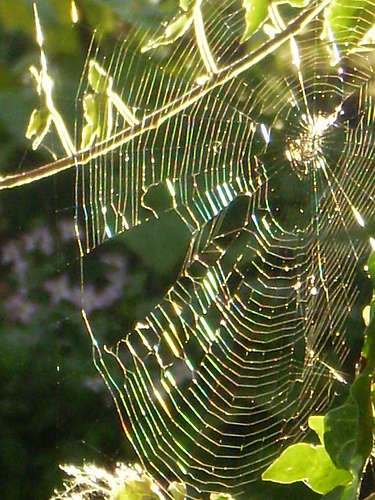Dave Winer recently pointed out two trends that pose risk to user-created content on the web:
- Over-reliance on url-shorteners. Fueled by twitter’s laconic style, more and more links to content are created using an indirection via url shortener services such as bit.ly and tr.im. The collapse of such a service may turn tons of links into broken links in an instant.
- Centralized conversation platforms. Shifting the conversation away from their blogs, influencing content publishers chose to center on platforms such as twitter and FriendFeed. Besides the increased noise inherent to lifestreaming, there is increased risk in making your contributions (and having your readers contribute back) in a site run by a private company with no real commitment to its users.
In the past two weeks both these risks materialized to some extent. The url-shortener service tr.im shut down, and that 404-iceberg was avoided in the last minute by the owners’ decision to open-source it. Then Facebook acquired FriendFeed, and their PR said
“…FriendFeed.com will continue to operate normally for the time being as the teams determine the longer term plans for the product.”
Hmm, right… So Scoble’s blog still loves him, and is probably a safer publishing venue.
But why is this such a big deal anyway?
We tend to forget how much we have invested into such services until they break down (as was the case with ma.gnolia). The web’s strength is in storing and being able to search in the content produced by millions of earthlings. The impact of frailness of large amounts of content or links is significant. Especially for social search, that content could be vital (OK, perhaps except for that part about what you had for breakfast).
As always with such issues, the best solution is decentralization. For url shorteners, the ‘shortlink’ protocol was already suggested for site-maintained shorteners, and WordPress has already implemented it. My blog is already enabled, try http://wp.me/plBAi-8Q. And then content decentralization is in our hands. Think about it the next time you post your thoughts into twitter rather than in your blog…

In the second point you’re ignoring the fact that the same service that may break-down is also what enables you to create the contribution in the first place. You’re presenting it as if every person who contributes on twitter also has a blog. No. Most of the people who contribute on twitter wouldn’t have contributed anything otherwise. The new platforms are lowering the barrier and are *creating* content where no content would have existed.
Another example: would you suggest to me to move all my flickr images to my own image server? And setup a viewing web site on top of it? With comments and favorites and sets?
I can promise you that then, instead of the 445 photos I currently have up there I would have exactly zero.
Of course that’s not what I am suggesting. So I’ll clarify: I’m referring to those moving from an independent blog to centralized platforms such as twitter.
Scoble’s example is classic – the guy invested a lot into FriendFeed, moved his center of activity there and many of his readers followed and held discussions over his thoughts (even when published in his blog) on FriendFeed. Now FF is suddenly not Scoble’s baby anymore, and may even shut down (for pure FB business reasons) some time in the future, thus eliminating those contributions.
The outcome of what I say is not that blogging is better than twittering. The fact that twitter exists only as a single instance of this type of platform (unlike blogging) is the distortion here, and it will change over time.
Update: Dave explains that concern better in a follow up post
Remember the phrase, a camel is a horse dengsied by a committee ?That’s no doubt what we’re all doing. Looks like nobody except me likes the idea of a lite FriendFeed. It’s getting slammed from East Coast to West Coast to Canada and Australia, so far as I can tell. The FriendFeed team debuted some great features I would not have predicted. That’s what they’re good at. My major concerns, as repeated elsewhere, is that many people tried it, didn’t like it, and haven’t come back. My goal was to find out what pushed them away, and what could be done to pull them back in.Practically the whole post was about focusing on new users, not the core like you, me and that Robert guy, whatever his name is.
Pingback: The secret to Facebook’s growth? | The Alter Egozi